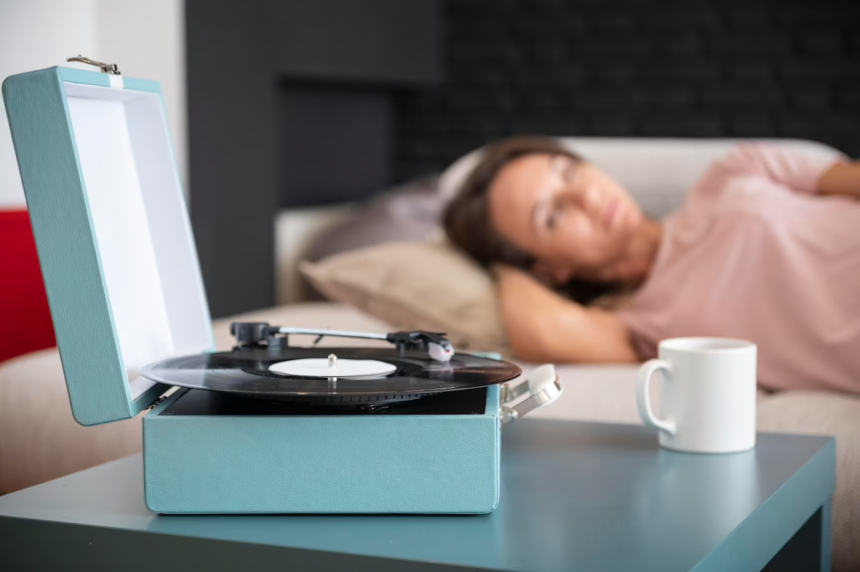Sleep is a vital component of our overall well-being, and it plays a significant role in maintaining good physical and mental health. In South Africa, where many individuals struggle with sleep-related issues, exploring different techniques to promote better sleep is essential. One such technique is the use of music as a powerful tool to aid relaxation and improve sleep quality. Understanding the role of music in promoting sleep and incorporating it into bedtime routines can have numerous benefits for individuals in South Africa seeking a restful night’s sleep.
- Relaxation and Stress Reduction: Music has a profound impact on our emotions and can elicit feelings of relaxation and calmness. Listening to soothing music before bedtime can help reduce stress levels, unwind the mind, and promote a state of relaxation. This can be particularly helpful for individuals experiencing anxiety or racing thoughts that often interfere with falling asleep.
- Sleep Induction and Sleep Maintenance: Music can assist in both the initiation and maintenance of sleep. Slow, gentle melodies with a low tempo and soft instrumental sounds can help create a conducive environment for falling asleep. These soothing sounds can mask background noise, reduce distractions, and promote a sense of tranquility, allowing individuals to drift off into a peaceful sleep.
- Distracting from External Stimuli: South Africa’s urban areas can be filled with noise and disturbances that disrupt sleep. The use of music can act as a pleasant distraction, diverting attention away from external noises and promoting a more serene sleeping environment. By providing a soothing auditory backdrop, music can help individuals focus on calming sounds rather than the disruptive noises that may interfere with their sleep.
- Regulation of Heart Rate and Breathing: Certain types of music, such as slow, instrumental tunes or nature sounds, have been found to synchronize with the body’s natural rhythms, helping to regulate heart rate and breathing. When our physiological responses align with calming music, it can promote a more relaxed state, making it easier to fall asleep and experience deeper, more restorative sleep.
- Associative Conditioning: Over time, individuals can develop positive associations between specific music and the act of falling asleep. By consistently using calming music as part of a bedtime routine, the mind becomes conditioned to associate these melodies with relaxation and sleep. This conditioning can enhance the effectiveness of music as a sleep aid and help establish a consistent sleep routine.
Tips for Incorporating Music into Bedtime Routine:
- Select Relaxing Music: Choose music genres known for their calming qualities, such as classical, instrumental, ambient, or nature sounds. Avoid fast-paced or stimulating music that may have the opposite effect.
- Create a Playlist: Curate a playlist of soothing songs or sounds that you find personally relaxing. Experiment with different types of music and melodies to find what works best for you.
- Establish a Routine: Set aside dedicated time each night to wind down before bed. Use this time to listen to your chosen relaxing music, allowing your mind and body to enter a state of relaxation before sleep.
- Limit Screen Time: Avoid using electronic devices or watching stimulating content before bed, as the blue light emitted by screens can interfere with the body’s natural sleep-wake cycle. Instead, opt for listening to music offline or using devices with a “night mode” that reduces blue light emission.
- Use Headphones or Speakers: Depending on personal preference, use headphones or speakers to listen to music. Headphones can provide a more immersive and private listening experience, while speakers can create a soothing ambiance throughout the room.
- Experiment and Customize: Everyone’s preferences for music differ, so it’s essential to experiment and customize your playlist according to your own taste and what helps you relax the most. Explore different artists, genres, and instrumental compositions to find the music that resonates with you.
- Seek Professional Advice: If you have underlying sleep disorders or persistent sleep disturbances, it’s advisable to consult a healthcare professional for a comprehensive evaluation. They can provide tailored advice and recommend additional therapies or treatments if needed.
Incorporating music into bedtime routines can be a simple yet effective way to enhance sleep quality for individuals in South Africa. By harnessing the power of music’s calming and soothing effects, individuals can create a more serene sleep environment, reduce stress, and experience the rejuvenating benefits of a restful night’s sleep.










